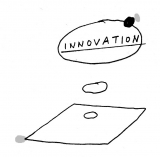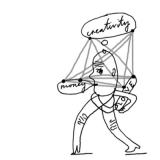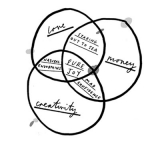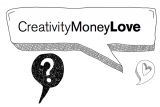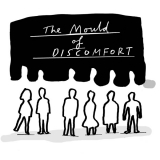Towards A More Creative And Green Economy
May 2013
The last five years have marked a turning point in the world economy, bringing about decisive shifts in global wealth and the structure of the international governance. Today the G-8 can no longer ignore the G-20 in the conduct of the international economic and development agenda, as emerging countries are...
After The Crunch: Revisited
April 2013
'After the Crunch' - a collection of short essays by artists, entrepreneurs, analysts, policy-makers, academics and financiers from across the creative and cultural sector - was published by the British Council and Creative & Cultural Skills in 2009. Over forty commentators were asked to present their thoughts on the future of...
Created in China
April 2013
John Howkins: China is the only part of the globe that is big enough and strong enough to go its own way outside the ambit of Europe and America. It's the only viable alternative we have - a different way of doing things. Philip Dodd: There's much talk within China...
Fair Ecology, Fair Use
April 2013
In 2009, we had no idea what a new, post-crunch British economy would look like. What we did know was that whatever shape a new economy took, it would depend increasingly on creativity. At the time, there was very little public recognition of this fact, prompting us to invite over...
Five Commandments (we can’t afford ten, anymore)
April 2013
In 2009, we had no idea what a new, post-crunch British economy would look like. What we did know was that whatever shape a new economy took, it would depend increasingly on creativity. At the time, there was very little public recognition of this fact, prompting us to invite over...
The Creative Economy: Beyond Economics
May 2013
In 2009, we had no idea what a new, post-crunch British economy would look like. What we did know was that whatever shape a new economy took, it would depend increasingly on creativity. At the time, there was very little public recognition of this fact, prompting us to invite over...
Creativity Money Love - Introduction
November 2011
The revolution is being televised: every day in the news we see radical changes being enacted around the world. It is also being digitised, and people are finding new ways of doing things for themselves. Two areas where change is happening at a frenetic pace are in the education system...
Connecting learners with museums - what are we waiting for?
November 2011
Museum worksheets have a lot to answer for. ‘Can you spot the cat on the far wall? How many places are set at the table?’ When I was a child worksheets in museums were relatively new, a valiant effort to reach out to younger visitors. Trouble is, they turned visits...
The seeds of hope
November 2011
The seeds of hope can best be seen at a local level, in the countless examples of grass roots initiatives, where people come together – not just to compensate for the failings of government – but to affect real change.Creativity Money Love
November 2011
In his recent MacTaggart lecture the CEO of Google, Eric Schmidt, spoke of the energy and inventiveness of Victorian Britain as ‘… a time when the same people wrote poetry and built bridges’. Most of us want that kind of richness and diversity to run through our communities. We all...
Freedom, fire and facts
November 2011
W. B. Yeats’s quote about education is well known: ‘Education is not the filling of a bucket, but the lighting of a fire.’ Richard Layard, in his landmark 2009 report for The Children’s Society, A Good Childhood, turns to Yeats when he writes that schools ‘should expand the powers of...
Another way in
November 2011
I don’t think many people in the cultural sector expected the newly-formed Creative & Cultural Skills to make apprenticeships a key skills priority in 2006. Employers weren’t crying out for them; most said that they’d like to have apprenticeships for graduates rather than engage with younger people. However, as we...
One size fits all, fits nobody
November 2011
How do you see the education and skills sector in relation to the creative industries as a whole but also your business? One of the problems with the music business is that we’re seen as a ‘sexy’ business and we’ve never been short of people wanting to work with us....
Schmidt, Leonardo and video games
November 2011
When Eric Schmidt delivered the MacTaggart lecture at this year’s Edinburgh International Television Festival, his views regarding UK education were widely publicised. Whilst most of the 560 comments on the BBC Technology pages subsequently focused on his surprise about computer science not being part of the UK schools curriculum, he...
Making a solar system
November 2011
Some time back in the 1980s when I worked in a local education authority, I remember visiting a struggling boys’ school. I was shepherded down a dingy corridor to the room where the meeting was to take place. The paint on the ceiling peeled, the blinds hung off the wall,...
The sheep conundrum
November 2011
From the point of view of our education system, creativity is a problem because it is chaotic. And systems abhor chaos. When we look around schools for our kids and see clean and tidy art departments adorned with carefully presented studies (or copies) of the works of ‘great artists’, we...
Forging a new culture of learning for a digital age
November 2011
As the UK’s first City of Culture in 2013, Derry-Londonderry’s vision for 2013 is inspired by the fusion between art and learning pioneered by Derry’s sixth-century founder, St Columba, whose monastic order created the Book of Kells. Derry’s year-long cultural programme will explore the role of creativity within education in...
Every school should be a creative school
November 2011
Having worked with the creative industries in school through creative partnerships what I was struck by that the creative industries are outcome drive, the successful people in those industries are able to combine the self motivation, and discipline to work to a brief with a set outcome in mind and...
Invest in your creativity – get a job!
November 2011
‘Plays bass alone!’ This three- word description of a young person’s creative endeavours was once sent to me in my capacity as manager of the New Deal for Musicians (NDfM) programme. At first, I was miffed, to say the least, at the brevity of the statement; yet when taken in...
The case for creative learning in hard times
November 2011
In 1981, I was in high school in America, immersed in a curriculum scheme called ‘college prep’. This is roughly equivalent to A-level work in Britain, albeit with less flexibility: back then, if you wanted to be positioned for university consideration, you took courses x, y and z, no questions...
A little more learning by doing
November 2011
As well as being craft entrepreneurs and employers, around a quarter of designer-makers based at Cockpit Arts are part time tutors, technicians and visiting lecturers. This makes the theme of education, creativity and employment a rather hot topic in the Cockpit studio corridors. Opinion is divided on whether current course...
Why fairy tales?
November 2011
The world is changing dynamically and within our lifetimes. This much is uncontroversial. The human population of the planet has tripled within half a century. Our gung ho plundering of environmental assets from deforestation to the fishing industry is changing the face of our present, let alone our future. Meanwhile,...
Singing songs of expectation
November 2011
Creative learning is the most effective catalyst for the vital life-chemistry of ambition, confidence and expectation. Creative learning unlocks expectation. It unlocks heightened expectation for young people of themselves. Even more powerfully, it unlocks the expectation which teachers, parents and carers have of young people. And those heightened expectations are...
The dangers of the discourse of skills
November 2011
In 2005 I became Warden of Goldsmiths, University of London, a higher education institution renowned for its creative buzz, for graduates who were dynamic, imaginative and at times difficult. Many of them fit well into the creative and cultural economy. The sector skills council Skillset was establishing Media Academies, recognizing...
Creative engineers
November 2011
When technology and working practices are changing so fast, is there enough emphasis on learning to learn rather than teaching kids stuff? Young people are pretty clever! And talented! They grow up with the technology of the day and have always been natural early adopters. Be it pen, pencil, print,...
Getting our playful natures right
November 2011
What if the playfulness that has always been a subterranean touchstone for educators since the Romantic period (from Rousseau to Froebel, Steiner to Montessori, Reggio Emilia to Summerhill) has become the Achilles heel of productive subjectivity? What if the regime of flexible production and knowledge management that typifies contemporary Western...
Economic creativity
November 2011
More than ever, creativity has become a competitive asset, as economies scramble up the economic ladder, or (like the U.S.) work to hold their place at the top. Cities, states and nations that harness the creative energy of their citizens are most likely to be innovators – and innovation is...
Creative learning through technology
November 2011
For the past few years, I’ve argued that, unless we’re prepared to become significantly more creative and imaginative in the way in which educate young people, the likelihood of them grasping the opportunity to fulfil their potential can only be enormously diminished. I’ve tried to promote the concept of innovation...
Good enough jobs and good enough workers
November 2011
Many of us who work in education, working with the graduates that will staff the cultural industries, would see it as our role to produce critical practitioners. This means not only having the skills and knowledge required to follow this type of work, but an ability to reflect on that...
Why an arts degree really is worth less than the paper it's written on
November 2011
For the creative industries to thrive, from the first scribblings at playgroup, to the most sophisticated innovations of our Masters students and beyond, we must ensure that all those with the innate talent and potential are able to access careers in our sector and flourish. Whilst there are any number...
Digital discoveries
- Non Gamstop Casinos
- Non Gamstop Casinos
- Non Gamstop Casino
- Casinos Not On Gamstop
- Slot Sites Not On Gamstop
- Casino Sites Not On Gamstop
- Non Gamstop Casino UK
- Slots Not On Gamstop
- Non Gamstop Casino Sites UK
- Reputable Casinos Not On Gamstop
- Non Gamstop Casino
- Casinos Not On Gamstop
- UK Casino Not On Gamstop
- Non Gamstop Casino Sites UK
- Best Slot Sites UK
- Casino Sites Not On Gamstop
- Casino Sites Not On Gamstop
- Non Gamstop Casino UK
- Gambling Sites Not On Gamstop
- Best Non Gamstop Casino
- List Of UK Casino Sites
- UK Casino Sites Not On Gamstop




